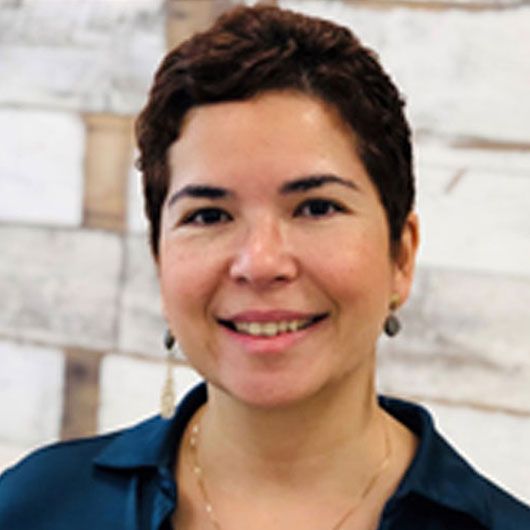
Maria Alexandrina Freitas
Managing Director
In an interview with the Global Compact Network Portugal (GCNP), the Managing Director of SERVESCO, Maria Alexandrina Freitas (MAF), talks about the biggest challenges of this pandemic and the adaptations that have been made by the organization, highlighting some of the main changes that, in her perspective, were caused by the pandemic: "take advantage of technologies, balance work and family life and communicate at a distance, making travel unnecessary"
Servesco
GCNP: What are, in your perspective, the biggest challenges of this pandemic, for your organisation and for SMEs in general?
MAF: We needed to adapt quickly in order to meet the commitments we had with our Clients. In fact, we always had a Contingency Plan prepared and continually adapted to the market needs and demands, but in fact, although it considers several types of occurrences and even catastrophes, a pandemic situation had never been contemplated until now. Thanks to our Quality and Safety team, it was immediately adapted to this new reality and put into practice immediately, without any constraints.
The whole adaptation process involved the work of several teams (IT and Technology Department, Training Department, Quality and Safety Department, Operations Department), all of them in harmony and eager to overcome this challenge with distinction. This was, indeed, an enormous challenge, due to the speed that was imposed on us. Nowadays, companies need to have this ability to adapt, and if they don't, they are left behind.
And given this reality we are living, another great challenge is companies’ Social Responsibility and starting from within: on the one hand, protecting our main asset, which is people (and their families) and, at the same time, managing to maintain our operations, which generate savings. It is difficult, but not impossible.
GCNP: What specifically is your organisation doing to respond to the new market challenges presented by the Covid-19 pandemic?
MAF: In our specific case, we are service providers in the area of Credit Recovery and our operations are developed in a Contact Centre environment. Facing the current situation, we had to provide an offer to our customers that would meet the Corporate Social Responsibility, keeping our employees safe and, at the same time, comply with all the Information Security protocols. Such a challenge made us put 100% of our employees in Telework. Consequently, our teams had to adapt and work in a slightly different way: from their homes.
Some of our customers had to change their procedures, as well as their offers. Following this, there was also the need to provide other types of services in the Customer Care and Back Office areas, services that became part of our portfolio during the pandemic period, to meet their needs.
GCNP: What do you think should be done, namely by the SMEs, so that the economy recovers from this crisis and a more resilient society is built?
MAF: We are going through a period that translates into a huge structural change in organisations and people's lives. And companies must follow this change by giving their contribution. Betting on technological innovation will be the answer to guarantee the sustainability of companies. On the other hand, working to guarantee the safety of companies' greatest asset: their employees.
How is this possible? Companies should invest in training their employees for a new society; work towards creating new working conditions, i.e., conditions that are adequate to the new reality we are living: implement flexible working hours; take as an example what has already been achieved with Telework; take advantage of new information/communication technologies, among others. In truth, this period will be long, companies cannot stop. The economy cannot stop. We are facing an enormous challenge to guarantee a level of income for companies, which can maintain the structures in this period of apnea, with the minimum impact.
GCNP: Do you think the world will stay the same after this pandemic?
MAF: Clearly not. We will all come out of this pandemic different. So will the world!
Without a doubt, it has challenged our capacity for adaptation and change. It forced us to leave our "comfort zone", changing some habits and routines that had already been taken for granted and learn to live in the confinement of our homes that, at the same time, became our workplace, our children's school, the tutoring centre, the academy for music or other extracurricular activities, the gymnasium... and refocus our attention on the family unit.
On the other hand, it will "teach" us to live with social distancing, because this is a habit that unfortunately will have to endure for the good of all. It will force us to behave with protection, awareness and respect for others.
Are we all going to be OK? Clearly not! But it will be important to know how to take the positive things that this imposed change can give us: it forced us to take advantage of technologies, it forced us to balance professional life with family life, it forced us to communicate at a distance making travelling unnecessary. And life goes on. It does not stop.
Are we going to be different? Clearly yes! In our emotions, in the management of our lives, in the definition of priorities and even in our relationships.
The world is going to change. In fact, the world is already changing! We will start a new stage: the "world after Covid", because the previous one is past. Companies are adapting, the world is adapting. The economy has slowed down because the priority is Humanity.




